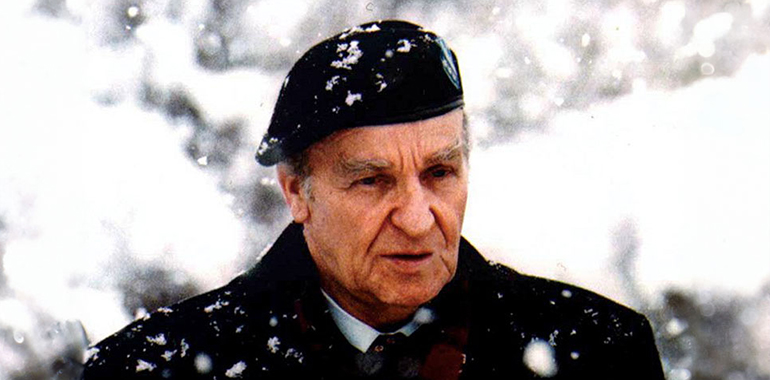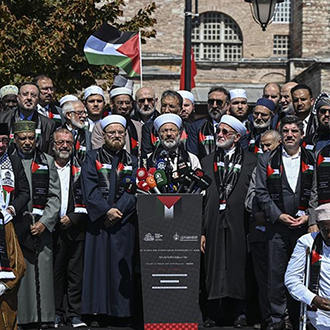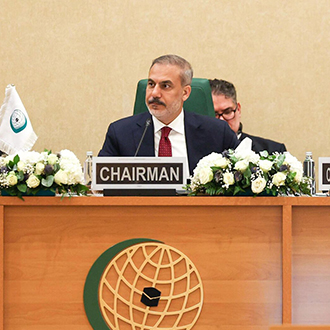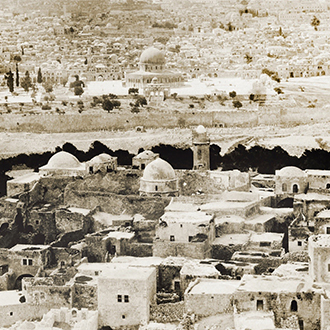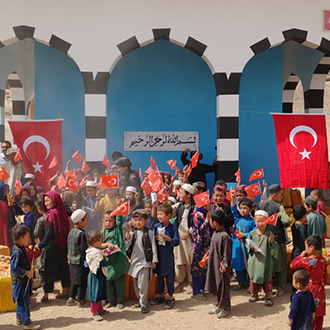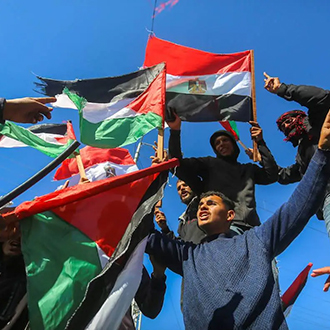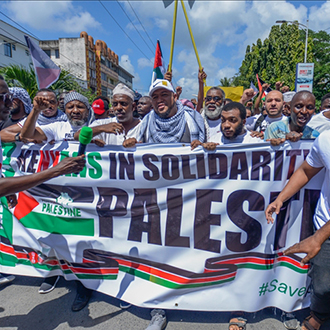Who is Alija Izetbegović?
Bosnian Muslim leader and thinker Alija Izetbegović was born on August 8, 1925, in Šamac. Just two years later, his family relocated to Sarajevo. Alija Izetbegović grew up in a religious family. He received such a good level of religious education and deep religious understanding that even as a child he attended morning prayers in the mosque.
Alija Izetbegović's dedication to his religious beliefs continued into his youth. During World War II, he joined the Young Muslims (Mladi Muslimani), an organization whose main purpose was to ensure that the Muslim community in the Balkans, which had been left without external support after the Ottoman State, could stand on its own feet again. However, the communist government established in post-war Yugoslavia viewed the Young Muslim organization as illegal and intolerable. As a result, in 1946 Alija Izetbegović was sentenced to three years in prison for his membership in this organization. After being released from prison, Alija Izetbegović began studying law in Sarajevo and at the same time continued his political activities in secret. He placed particular emphasis on the intellectual reconstruction of the Muslim community. His book, ‘The Islamic Declaration’, written in the 1960s, was a product of these efforts. In 1980, following the death of Yugoslav President Tito, a power struggle emerged for the Presidency of the Federation. A compromise was reached stipulating that the Presidency of the Federation would rotate annually among the leaders of each of the six federal states. This led to a relative softening of the totalitarian regime in the country. However, this arrangement was short-lived.
In the meantime, taking advantage of the more lenient atmosphere, Alija Izetbegović, in 1983, published his work entitled ‘Islamic Manifesto’. Consequently, the totalitarian Yugoslav regime which could not tolerate this opposition accused Izetbegović of hostility to the state, sentencing him to fourteen years in prison. Eventually, his sentence was reduced to eleven years, and he was granted an amnesty in 1988 resulting in his release.
The Leader Alija Izetbegović
At the time of Alija Izetbegović's release from prison, the political landscape was undergoing significant changes with the collapse of the socialist Eastern Bloc. It was during this period that Izetbegović founded the Party of Democratic Action. The party won the general elections held in Bosnia on December 5, 1990, and Alija Izetbegović became the President of the Republic of Bosnia, which was a constituent part of the Yugoslav Federation.
However, as the Eastern Bloc disintegrated, the totalitarian regime in Yugoslavia also began to dissolve. Yet, this dissolution did not lead to a peaceful and democratic transition. Instead, the republics that made up the Socialist Federal Republic of Yugoslavia began to declare their independence one after another, and the country was plunged into a civil war. Amidst this turbulent environment, the parliament of Bosnia-Herzegovina, which wanted to liberate itself from Serbian domination and assert its national will, held a referendum on independence on March 1, 1992. When the referendum resulted in favor of independence, the Republic of Bosnia-Herzegovina officially declared its independence. However, the response from the Yugoslavian army, under the control of the Serbs and the Bosnian Serb militants armed by them, was brutal. They initiated a violent war against the Muslim population in Bosnia-Herzegovina.
Perhaps the greatest fortune of the people of Bosnia-Herzegovina in this difficult period was that they endured it under the leadership of Alija Izetbegović, a strong-willed and reflective leader.
A Leader Who Guided His People
The Bosnian Muslims found themselves in a significantly disadvantaged military position against the Serb and Croat groups in the face of the organized attack that began immediately after Bosnia-Herzegovina declared its independence. As a result, the Serbs swiftly occupied numerous cities and towns in Bosnia during the initial stages of the offensive.
Alija Izetbegović, who led his people in the Bosnian War that lasted from 1992 to 1995, not only fought for an independent Bosnia as a political leader, both on the front line and at the diplomatic table, but also as a thinker, where he put into practice what he wrote in his books. In this brutal war, he taught his people that they should fight for their freedom as Muslims, emphasizing that they should do so without deviating from the principles of morality as Muslims, no matter what they experienced.
While Alija Izetbegović infused and empowered his people with a strong determination through the words "I vow to Allah, whose strength is above all, we will not be slaves", he also instilled in them a consciousness that guided them to carry out their struggle for freedom within the bounds of humanitarian and moral principles, despite their immense suffering and pain.
The war, during which Bosnian Muslims endured immense suffering, ended with the signing of the Dayton Agreement in 1995. As a result of the war, two hundred thousand people lost their lives, and more than one million people became refugees.
Alija Izetbegović as a Thinker
As mentioned earlier, Alija Izetbegović was not only a political leader but also one of the most important Muslim thinkers of the 20th century. He demonstrated to the entire Muslim world, especially the Balkan Muslims, how to speak out against the Western concepts of the modern era by adhering to the sources of Islam.
Alija Izetbegović's approach as a Muslim thinker is to present Islam both as a religion and as a civilization that offers a superior balance between the two extremes to which the world is drifting. This idea is based on the Qur'an's own description of the Islamic community as "the community that follows the middle path (ummatan vasatan)". According to Alija Izetbegović, Islam, as a religion representing the middle path, gives equal weight to both worlds.
In this line of understanding, Alija Izetbegović finds the salvation of Muslims in adhering to this principle of balance brought by Islam. According to him, Muslims must take care of their material and spiritual needs in order to achieve salvation in both worlds.
Hence, Izetbegović is not only a thinker who acknowledges the crises faced by Muslims in the face of the impositions of the modern world but also proposes solutions. According to him, the thinkers of this civilization, who guide Muslims, have adopted either a conservative or a modernist approach and have swung to the two extremes of the spectrum, which is an error. This cannot take Muslims out of the crises of the modern age for Islam in its essence is a religion that already represents the middle ground between these extremes. According to him, it will be a group of Islam-conscious and enlightened people who adopt this middle path approach of the Holy Qur'an that will lead the Muslim society out of this crisis and shape its future.
Alija Izetbegović, who continued his work in this line, focused on universal problems such as existence, freedom, God, life, love, death, religion, and politics, and as a Muslim thinker, he provided a universal expansion of ideas that reached not only Muslims but also all human beings.
But above all, Izetbegović's legacy to Muslims as a thinker is not only these philosophical approaches and intellectual endeavors in his books. Equally important is the fact that he was able to combine his ideas with his actions and transform his thoughts into moral actions. This is a very precious legacy for the Muslim world.
As a political leader and thinker, Alija Izetbegović was conscious of the religion he believed in and the civilization to which he belonged. For this reason, he maintained a dual perspective, rooted in his own civilization while exploring the horizons from east to west. In doing so, he left important insights into the approach that the Muslim world should take to face the modern world. He was a figure who was not afraid to open up to different horizons while preserving and emphasizing his Muslim identity. Through all his writings and experiences, he had a profound understanding of both Western and Eastern civilizations and had the depth, sincerity, and universality to point out to the people of modern times where they should stand.



